
Laura Sanders reports on neuroscience for Science News. She wrote Growth Curve, a blog about the science of raising kids, from 2013 to 2019 and continues to write about child development and parenting from time to time. She earned her Ph.D. in molecular biology from the University of Southern California in Los Angeles, where she studied the nerve cells that compel a fruit fly to perform a dazzling mating dance. Convinced that she was missing some exciting science somewhere, Laura turned her eye toward writing about brains in all shapes and forms. She holds undergraduate degrees in creative writing and biology from Vanderbilt University in Nashville, where she was a National Merit Scholar. Growth Curve, her 2012 series on consciousness and her 2013 article on the dearth of psychiatric drugs have received awards recognizing editorial excellence.

Trustworthy journalism comes at a price.
Scientists and journalists share a core belief in questioning, observing and verifying to reach the truth. Science News reports on crucial research and discovery across science disciplines. We need your financial support to make it happen – every contribution makes a difference.
All Stories by Laura Sanders
-
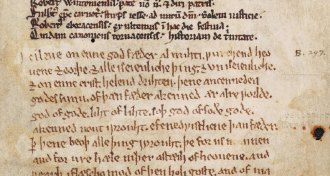 Science & Society
Science & SocietyNeurological condition probably caused medieval scribe’s shaky handwriting
By scrutinizing a medieval scribe’s wiggly handwriting, scientists conclude that the writer suffered from essential tremor.
-
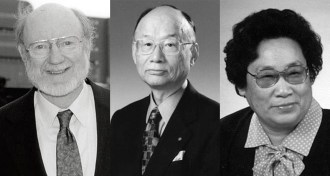 Health & Medicine
Health & MedicineNobel medicine prize won for drugs from natural sources
Nobel Prizes in medicine or physiology awarded for drugs that combat roundworms and malaria
-
 Neuroscience
NeuroscienceKavli Foundation gives more money for the brain
The Kavli Foundation will provide $100 million toward solving the mysteries of the brain.
-
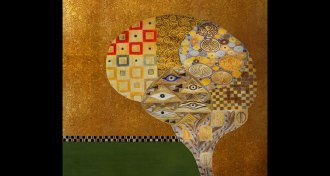
-
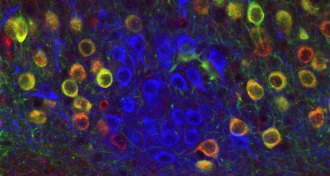 Neuroscience
NeuroscienceSeparate cell types encode memory’s time, place
Cells called ocean cells help store a memory’s “where,” while other cells called island cells help store a memory’s “when.”
-
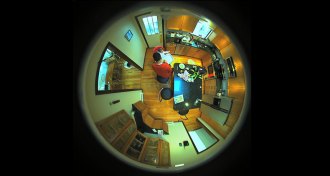 Health & Medicine
Health & MedicineFor kids learning new words, it’s all about context
By recording the first three years of life, researchers get hints about a child’s language development.
-

-
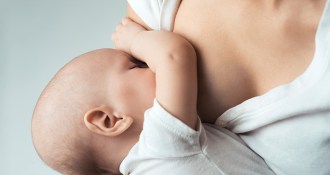 Health & Medicine
Health & MedicineBackwash from nursing babies may trigger infection fighters
A nursing baby’s saliva may get slurped back into mom’s breast, where it stimulates an immune response.
-
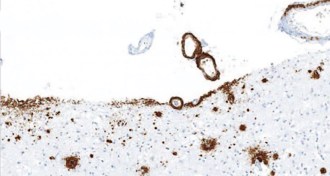 Neuroscience
NeuroscienceMisfolded proteins implicated in more brain diseases
Alzheimer’s, other disorders show similarity to Creutzfeldt-Jakob disease and other prion infections.
-
 Neuroscience
NeuroscienceAltered protein makes mice smarter
By tweaking a single gene, scientists have turned average mice into supersmart daredevils.
-
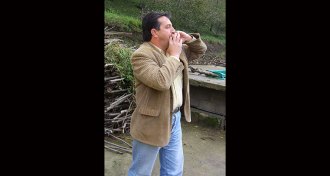 Neuroscience
NeuroscienceWhistled language uses both sides of the brain
Unlike spoken words, language made of whistles processed by both sides of the brain.
-
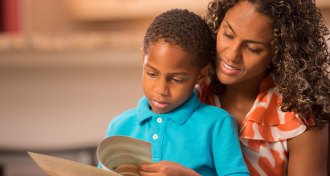 Health & Medicine
Health & MedicineStudy finds early signs of bookishness in a child’s brain
Children from book-friendly homes show higher brain activity when they hear a story, but there’s more to learn about how reading affects growing brains.